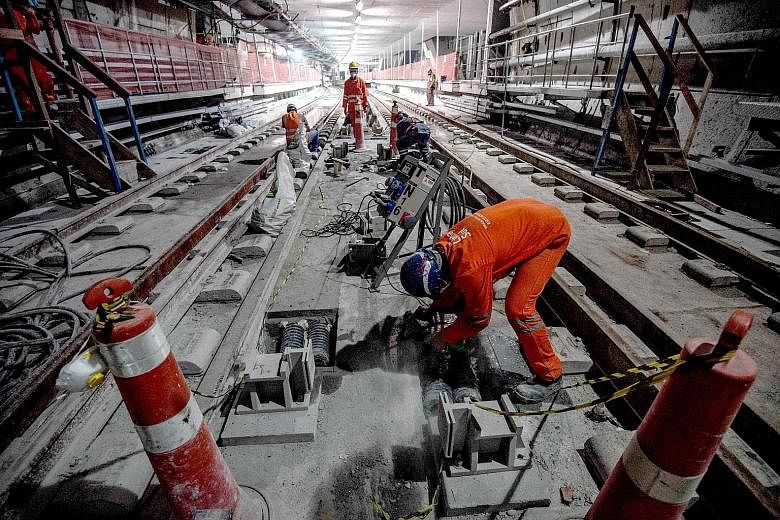RIO DE JANEIRO • Organisers of the cash-strapped Rio Olympics on Tuesday announced cuts to everything, from stadium seating to perks for participants, but gave assurances that the Games' biggest infrastructure project - the extension of the Rio metro - is on time.
Stuck in its worst recession since the 1930s, Brazil is rebranding the first Olympics in South America as a model of austerity in contrast to London 2012 and the lavish Beijing Olympics in 2008.
"We are cutting some services and making important adjustments in the committee's budget. In future, many Games will follow this example to create economically sustainable events with no white elephants," Mario Andrada, chief spokesman for the Rio 2016 organising committee, told journalists in Sao Paulo.
However, fans appear unconvinced and Andrada reported lacklustre ticket sales - only about half of tickets allotted to Brazilians have gone, while so far just 300,000 of some three million tickets to the Paralympics - which comes weeks later - have been purchased.
When Rio was awarded the hosting rights in 2009, Brazil was booming, but six months ahead of the Aug 5 opening ceremony, inflation is at more than 10 per cent and the economy is expected to remain in recession through 2017.
One victim of the austerity cuts will be the stands at the Rodrigo Freitas lagoon in the heart of Rio, where rowing will take place.
A proposal for an additional seating area that would have projected out onto the water has been axed.
The public will not notice many of the cost-cutting measures, but athletes and their delegations will.
The fleet of courtesy vehicles is being cut from 5,000 to 4,000. To save money on training and clothing, the number of volunteers has also been slashed from 70,000 to 50,000.
There was good news, however, in assurances that the extension of Rio's underground metro system will be completed in time for the Games.
The city's Line 4 will be crucial in moving huge crowds between central Rio and the far-flung western area where the Olympic Village and many of the competitions are based.
After the Games, the extension is expected to remain the biggest positive legacy, helping to link a city that has struggled to overcome a complicated geography of steep hills and Atlantic coastline.
The consortium in charge of the project said that works are 83 per cent complete, with 13km of the 16-km track ready. Inauguration of the line is still expected to take place on July 1, a month before the Games open.
AGENCE FRANCE-PRESSE

